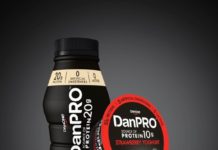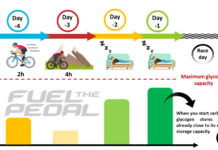Stay Strong for Longer
BCAA lowers fatigue by up to 15%
When your body breaks down or digests proteins, amino acids are what’s left behind. There are nine essential amino acids, which are not made by your body and therefore must be obtained via your diet.
Of them, three — leucine, isoleucine and valine — are considered branched-chain amino acids (BCAA) because they have a branched molecular structure.
While most amino acids are broken down in your liver, BCAAs are broken down primarily in your muscle. As such, they’re believed to help improve exercise performance as well as reduce the breakdown of muscle.
Supplemental BCAA is popular among athletes and body builders; however, I’d caution against taking BCAA in supplement form because it can activate the mTOR pathway, an ancient molecular signaling pathway. It’s best to obtain BCAAs from your diet.
![]()
Benefits of Branched-Chain Amino Acids for Exercise Performance
There are a number of reasons why BCAAs are important. In general, they act as building blocks for protein and muscle and may also help to regulate your blood sugar levels and even improve blood-sugar metabolism.1
They’ve received quite a bit of attention as of late for their potential to reduce fatigue during exercise, as well.
Earlier this year, a study published in the Journal of Sports Science and Medicine (JSSM) revealed that BCAAs improved endurance exercise performance among endurance runners, possibly by inhibiting the brain’s production of serotonin (elevated cerebral serotonin is one factor that contributes to fatigue during exercise, and serotonin is associated with feelings of lethargy and tiredness).2
BCAAs alleviated central fatigue among the runners during two consecutive days of competitive races, allowing them to run faster with the same degree of perceived exertion. This led the researchers to suggest BCAA may be especially helpful for athletes facing multi-day competitions.
Other research suggests BCAAs may lower ratings of perceived exertion during exercise by 7 percent and ratings of mental fatigue by 15 percent compared to placebo.3 Even among sailors taking part in a 32-hour offshore sailing race, a high-protein diet with BCAAs decreased the feeling of fatigue.4
How BCAAs Reduce Muscle Soreness
BCAAs’ other claim to fame is their ability to reduce muscle soreness after a workout, and they’re known to increase protein synthesis and decrease muscle protein breakdown.5
BCAAs taken before and following damaging resistance exercise was shown to reduce markers of muscle damage as well as accelerate recovery. According to the Journal of the International Society of Sports Nutrition (JISSN):6
“It seems likely that BCAA provided greater bioavailablity of substrate to improve protein synthesis and thereby the extent of secondary muscle damage associated with strenuous resistance exercise.”
BCAAs are also known to lower levels of creatine kinase and lactate dehydrogenase, which are enzymes associated with muscle damage, and therefore to reduce the muscle damage associated with endurance exercise.7
When taken prior to squat exercises, female exercisers experienced significantly lower levels of delayed-onset muscle soreness (DOMS).8
In addition, an animal study found BCAAs, in particular leucine, “accelerate recovery from muscle damage by preventing excessive inflammation.”9 While there is some conflicting data, BCAAs do seem to help reduce muscle soreness following exercise. According to Authority Nutrition:10
“Various studies asked participants to rate their muscle soreness levels after performing certain strength-training exercises. Participants who were given BCAA supplements rated their muscle soreness levels as much as 33 [percent]lower than those given a placebo.
In some cases, those given BCAAs also performed up to 20 [percent] better when they repeated the same strength-training tests 24 [to] 48 hours later. However, effects may vary based on your gender or the total protein content of your diet.”
Why You’re Better Off Getting BCAAs From Food, Not Supplements
One of the primary problems with BCAA supplements is that excess amino acids stimulate mTOR. Insulin, leptin and insulin-like growth factor (IGF) are examples of nutrient-sensing hormones that in turn regulate metabolism, growth, cell differentiation and cellular survival. Organizing all of these nutrient sensors is the mammalian target of rapamycin (mTOR).
It decides whether cells should replicate now or stay alive to replicate at a more opportune time in the future when nutrients are more plentiful. The latter is part of the mechanism that allows for life extension.
The mTOR pathway regulates growth and repair. Either growth or maintenance and repair is promoted, depending on whether mTOR is up- or downregulated. When mTOR is suppressed, maintenance and repair is upregulated and that results in increased longevity, which is what you want.
However, excess amino acids stimulate mTOR, which is why I don’t recommend BCAA supplementation (or eating large amounts of protein). Of all the components that stimulate mTOR, amino acids are the most potent stimulators.
Virtually all cancers are associated with mTOR activation, as well, so activating mTOR is something you’ll definitely want to avoid. Toward this end, in addition to avoiding BCAA supplements, I recommend limiting your protein intake to about 40 to 70 grams per day, depending on your lean body mass.
Taking leucine as a free form amino acid supplement should also be avoided, as intravenous administration of free form leucine has shown to cause severe mTOR activation also suppresses mitochondrial biogenesis or the ability of your body to reproduce new mitochondria which are the powerhouse of your cells.
First published at Dr Mercola












